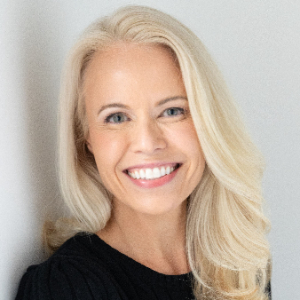Why "Max Qualifying" for a Mortgage is Riskier Than Ever
Apr 24, 2024
Buying a house is often viewed as a crucial step towards achieving personal and financial success. However, in the rush to secure a dream home, many first-time homebuyers, and even seasoned buyers, make the mistake of max qualifying for a mortgage. Max qualifying means that a lender approves you for the highest possible mortgage amount you can technically afford. On the surface, it might seem advantageous to maximize your budget, but this approach carries significant risks, especially in today's economic climate.
The Perils of Max Qualifying
Max qualifying ties closely to your debt-to-income (DTI) ratio, which is a standard measure lenders use to determine how much you can borrow. This ratio compares your total monthly debt payments (including your future mortgage) to your gross monthly income. Conventional loans cap the DTI ratio at around 50% for standard loans. FHA and VA can be as high as 60%.This ratio might seem just a number, but it has profound implications on your financial health.
- High DTI Ratios: If a lender pushes your DTI to its upper limit, like 60%, you might find
yourself in a precarious financial position. With 60% of your gross income dedicated to
debt payments, the remainder must cover all other living expenses. After taxes, what’s
left can often be alarmingly minimal, sometimes barely covering basic needs in some
states. - Future Financial Flexibility: By stretching your finances thin, you leave little room for
unexpected expenses or changes in your financial situation. Any increase in monthly
outgoings or a sudden financial need can become a serious issue, potentially risking
foreclosure.
The Growing Burden of Insurance and HOA Fees
Recent trends in insurance costs add another layer of complexity to the homeownership equation. Homeowners' insurance rates have been climbing consistently, with some states seeing dramatic year-over-year increases. For instance, states like Florida have experienced insurance premium hikes of 30-40% in a single year.
Surprise Costs: Besides general market increases, insurance companies may reassess your property's risk post-purchase, leading to higher premiums than initially quoted. Similarly, if you’re buying a condo, HOA fees are another variable cost that can escalate without warning, significantly affecting your monthly budget.
How to Safely Navigate Your Mortgage Application
Given these risks, it is crucial to approach your mortgage with caution:
Understand Your Real Budget: Rather than relying on the maximum loan amount for which you qualify, consider what monthly payment you can comfortably afford. Factor in all living costs and potential increases in expenses such as insurance premiums and taxes.
Get Accurate Estimates: Ensure that your budgeting includes realistic figures for property taxes and insurance. Obtain multiple insurance quotes and use actual tax data from property records whenever possible. Be wary of estimates that seem unusually low—they can be misleading and disrupt your financial planning.
Plan for the Worst: While no one likes to think negatively, planning for less- than-ideal scenarios can protect you against future financial stress. Consider how changes like a job loss or emergency expenses would impact your ability to pay your mortgage.
The Bottom Line
While securing a home loan for your dream house can be exciting, overextending yourself financially by max qualifying can lead to significant stress and potential financial ruin. It’s more crucial than ever to adopt a conservative approach when it comes to mortgage applications. Analyze your financial situation thoroughly, consider future risks like rising insurance costs and HOA fees, and always prepare for unexpected changes in your financial landscape.
By doing so, you not only safeguard your financial future but also ensure that your home remains a source of joy rather than a burden. My team and I are here to help you home so please feel free to reach out and start planning https://calendly.com/jennifer-beeston

